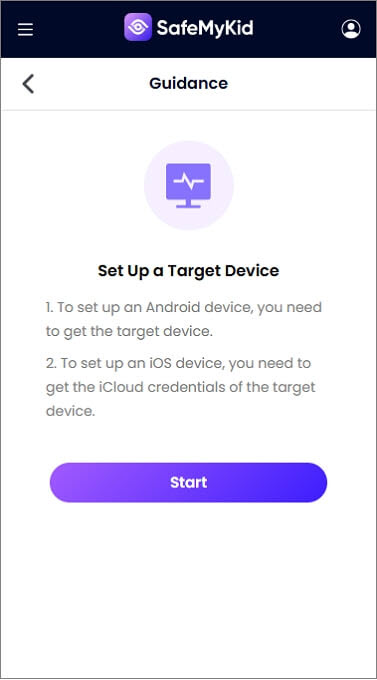I Think My Wife Is Having an Affair: 6 Signs to Address Suspicions and Find Clarity

The thought "I think my wife is having an affair" can be one of the most emotionally distressing experiences in a marriage, creating a complex mixture of uncertainty, hurt, and confusion that affects every aspect of your relationship.

When suspicions arise, distinguishing between normal relationship changes and potential infidelity indicators becomes crucial for addressing concerns effectively. This guide helps navigate this challenging situation with balanced insights and constructive approaches for finding clarity while maintaining dignity.
Why Suspicions about Your Wife's Affairs Arise and How to Evaluate Them
Before taking action when you think your wife is having an affair, understanding the common triggers for suspicion and how to evaluate them objectively creates a foundation for addressing concerns effectively.
Suspicions often emerge from noticeable behavioral changes such as increased privacy around devices, unexplained absences, or shifts in intimacy patterns. These changes might trigger concerns, especially when they appear suddenly or without a clear explanation.
Past relationship experiences, including previous infidelity or trust issues from former relationships, can heighten sensitivity to potential warning signs, sometimes creating pattern recognition where none exists.
Additionally, broader relationship challenges like communication breakdowns, unresolved conflicts, or emotional distance may amplify normal behaviors into suspicious patterns.
SafeMyKid - The Most Reliable Solution When You Think Your Wife Is Having an Affair

When the thought "I think my wife is having an affair" creates ongoing distress without resolution through communication, some couples implement verification tools as part of a transparent agreement to rebuild trust.
SafeMyKid offers a comprehensive monitoring solution that provides objective clarity during challenging relationship periods.
Although primarily marketed for parental monitoring, its features can serve as a mutual verification tool when both partners agree to transparency measures during the rebuilding of trust.
The application works across both Android and iOS devices, providing location verification, communication monitoring, and digital activity tracking that can help confirm whether concerns are founded or can be put to rest through factual verification.
Key Features of SafeMyKid for Your Wife Affair Detection
When struggling with the thought "I think my wife is having an affair," SafeMyKid offers several features that can provide clarity as part of a mutual transparency agreement:
Location Verification - Confirm whereabouts through precise tracking that documents movement patterns and location history.
Communication Monitoring - View messaging activity across various platforms to verify appropriate boundaries in digital communications.
Social Media Surveillance - Monitor social media activities where inappropriate relationships often develop or are maintained.
Digital Activity Timeline - Establish patterns of technology usage that either confirm concerns or provide reassurance about digital behaviors.
Deleted Content Recovery - Access information that might otherwise be inaccessible through normal device inspection.
These verification capabilities provide objective evidence that supports either confirming concerns or rebuilding trust based on factual clarity rather than continued suspicion.
How to Set up SafeMyKid to Detect Wife's Affair
Implementing SafeMyKid for affair detection requires careful setup to ensure comprehensive monitoring while maintaining discretionary operation.
Step 1. Create Your SafeMyKid Monitoring Account
Visit the SafeMyKid website to establish your affair detection account with appropriate monitoring features for comprehensive surveillance.

Step 2. Set up SafeMyKid on Wife's Device
For Android: Install SafeMyKid directly on your wife's device during brief unsupervised access to enable comprehensive monitoring capabilities.
For iOS: Use iCloud credentials to enable monitoring without physical access to the device while maintaining complete surveillance functionality.

Step 3. Begin Comprehensive Wife Affair Monitoring
Access your secure dashboard to review location data, communications, social media activities, and all other evidence related to potential affairs activities.

When implemented properly with legal device access, SafeMyKid provides definitive evidence about affair activities, eliminating uncertainty and enabling informed decisions about your marriage's future.
6 Common Signs When You Think Your Wife Is Having an Affair
These behavioral patterns often trigger the thought "I think my wife is having an affair," though they should be considered as potential indicators rather than definitive proof.
1. Communication and Emotional Changes

When you think your wife is having an affair, significant shifts in communication patterns and emotional availability often represent the first noticeable changes within the relationship.
Potential indicators include:
- Decreased sharing of daily experiences and feelings
- Emotional withdrawal or unusual distance
- Defensiveness when asked about routine matters
- Increased criticism or finding fault with you
- Unexplained mood swings or irritability
- Reduced interest in family activities previously enjoyed
These changes may appear as a general pulling away from the relationship emotionally, creating a sense of disconnection that feels different from normal relationship fluctuations or temporary stress responses.
2. Digital Behavior and Phone Secrecy
In today's connected world, changes in digital behavior often prompt the thought "I think my wife is having an affair" due to the role electronic communications play in modern relationships.
Concerning digital patterns include:
- Password changes on previously accessible devices
- Taking calls in private or leaving the room to text
- Positioning the phone screen away from your view
- Unusual notification patterns at specific times
- Deleting text messages or browsing history
- New apps or messaging platforms appearing
- Visible panic if you handle or use her phone
These digital privacy increases become particularly significant when they represent a change from previous sharing patterns rather than long-established personal boundaries.
The digital realm often provides the first concrete indicators of potential infidelity, explaining why phone behavior frequently triggers initial suspicions in modern relationships.
3. Schedule Changes and Unexplained Time
When you think your wife is having an affair, unexplained changes in availability and routine often create some of the most tangible evidence for concern.
Time-related warning signs include:
- Working late more frequently without clear work demands
- New activities or commitments without much detail
- Unexplained absences or unaccounted time periods
- Difficulty reaching her during specific time blocks
- Vague explanations that change when questioned
- Increased business trips or overnight stays
- Friends who seem uncomfortable when mentioning her whereabouts
These schedule disruptions typically create opportunities for potential infidelity, making them particularly significant when they coincide with other warning signs like emotional distance or digital secrecy.
While schedule changes alone might have innocent explanations, patterns of unexplained time combined with defensive responses to questions often strengthen suspicions of hidden activities.
4. Physical and Appearance Changes

Significant shifts in physical presentation and habits sometimes contribute to the feeling "I think my wife is having an affair" when they appear alongside other concerning patterns.
Appearance-related changes might include:
- Sudden interest in fitness or weight loss
- New clothing styles or lingerie you never see
- Increased attention to makeup or hairstyling
- Enhanced grooming habits without a clear reason
- New perfumes or body products
- Dressing up for seemingly routine activities
- Showering immediately upon returning home
While self-improvement is positive in itself, these changes raise concerns when they seem directed outward rather than shared within the relationship.
The significance lies in whether these changes represent natural personal evolution or appear suddenly without the inclusion of you as the partner, particularly when combined with other concerning indicators.
5. Intimacy and Physical Connection Shifts
Changes in physical intimacy often prompt the thought "I think my wife is having an affair" due to their direct connection to the exclusive nature of marital relationships.
Intimacy-related indicators include:
- Significant decrease in sexual interest or frequency
- Introduction of new techniques without discussion
- Emotional disconnection during intimate moments
- Avoidance of physical affection beyond sexuality
- Comparison of your intimate relationship to external standards
- Unexplained physical discomfort or reluctance
- Showering before intimacy when this wasn't previous behavior
These intimate changes often feel particularly personal, creating emotional hurt beyond the suspicion itself due to the vulnerable nature of the physical connection.
6. Social Network and Friend Behavior

Sometimes when you think your wife is having an affair, subtle changes in social dynamics or friend behaviors provide external validation for internal concerns.
Social indicator patterns include:
- Mutual friends seem uncomfortable around you
- Receiving unusual sympathy from people without context
- Friends making references to events you weren't aware of
- New friendships that aren't introduced to you
- Decreased couple socializing with longtime friends
- Family members asking indirect questions about your relationship
- Social invitations where your presence seems unexpected
These social dynamics often provide objective external indicators that something has changed, sometimes confirming suspicions that might otherwise feel subjective.
How to Address Your Concerns about Your Wife's Affairs Constructively
When you think your wife is having an affair, how you approach the situation significantly impacts both your emotional well-being and the potential for relationship resolution.
Self-Reflection before Action
Before directly addressing the thought "I think my wife is having an affair", taking time for personal reflection helps ensure your approach comes from clarity rather than reactive emotion.
Important reflection questions include:
- Do I see patterns of behavior or isolated incidents?
- Could there be alternative explanations for what I'm observing?
- How might my past experiences be influencing my current perceptions?
- What specific behaviors (rather than interpretations) am I concerned about?
- Am I contributing to relationship distance in ways I haven't recognized?
- What do I ultimately want for this relationship regardless of current concerns?
Effective Communication Approaches
When you're ready to discuss your concern that "I think my wife is having an affair", how you initiate and navigate the conversation significantly impacts its productivity.
Constructive communication strategies include:
- Choosing a private, calm environment without time constraints
- Starting with "I" statements about your experience rather than accusations
- Focusing on specific behaviors you've observed rather than conclusions
- Expressing how the behaviors have affected you emotionally
- Listening actively to responses without interrupting
- Asking open-ended questions that invite an explanation
- Watching for defensive patterns versus genuine engagement
When to Consider Professional Support
The emotional complexity of thinking "My wife is having an affair" often benefits from professional guidance, whether for individual processing or relationship intervention.
Consider professional support when:
- Communication attempts consistently escalate into conflict
- You find yourself unable to manage emotional reactions
- An objective perspective is needed on ambiguous evidence
- Trust issues persist despite explanations or reassurances
- The relationship seems stuck in patterns of suspicion and defense
- You need support regardless of what you discover
- Both partners recognize the need for relationship-rebuilding
Professional Counseling - Alternative Approach When You Think Your Wife Is Having an Affair
After extensive analysis of relationship outcomes and expert recommendations, professional marriage counseling consistently emerges as the most effective approach when you think your wife is having an affair due to its focus on communication, truth-seeking, and relationship preservation.
Professional counseling provides a structured environment for addressing affair suspicions while protecting both partners' emotional well-being. This approach offers the highest success rates for relationship recovery regardless of whether infidelity has actually occurred.
Marriage counselors are trained to navigate these sensitive situations with techniques that encourage honesty while minimizing defensive reactions that often derail direct confrontations about affair suspicions.
Frequently Asked Questions When You Think Your Wife Is Having an Affair
Understanding answers to these common questions can help you navigate this challenging situation more effectively.
1. Should I confront my wife immediately with my suspicions?
When you think your wife is having an affair, immediate confrontation without sufficient reflection often leads to unproductive outcomes. Instead, take time to gather your thoughts.
Identify specific behaviors (rather than conclusions) causing concern, and plan a conversation focused on understanding rather than accusation.
2. How can I tell if I'm being paranoid or if my concerns are legitimate?
Distinguishing between paranoia and legitimate concerns involves several key strategies. First, evaluate whether you're seeing consistent patterns versus isolated incidents that could have innocent explanations.
3. Is checking my wife's phone or email justified if I suspect cheating?
The question of monitoring when you think your wife is having an affair involves both relationship and legal considerations. While the desire for verification is understandable, unauthorized access to accounts may violate privacy expectations and potential laws in some jurisdictions.
4. How do affairs typically impact marriages in the long term?
The long-term impact of infidelity varies significantly based on multiple factors including the affair's nature, how it's discovered, both partners' commitment to healing, and the relationship's pre-existing strength.
5. How can I maintain my dignity throughout this process?
Maintaining dignity when you think your wife is having an affair involves several intentional approaches. Focus on fact-based assessment rather than emotion-driven accusations. Communicate your concerns clearly without resorting to manipulation, threats, or degrading language.
Conclusion
The thought "I think my wife is having an affair" creates one of marriage's most challenging emotional experiences, requiring careful navigation to find clarity while maintaining both relationship potential and personal well-being.
By approaching suspicions with a balanced perspective——taking warning signs seriously while remaining open to alternative explanations——you create the foundation for either addressing legitimate concerns or preventing unnecessary relationship damage from unfounded suspicions.


